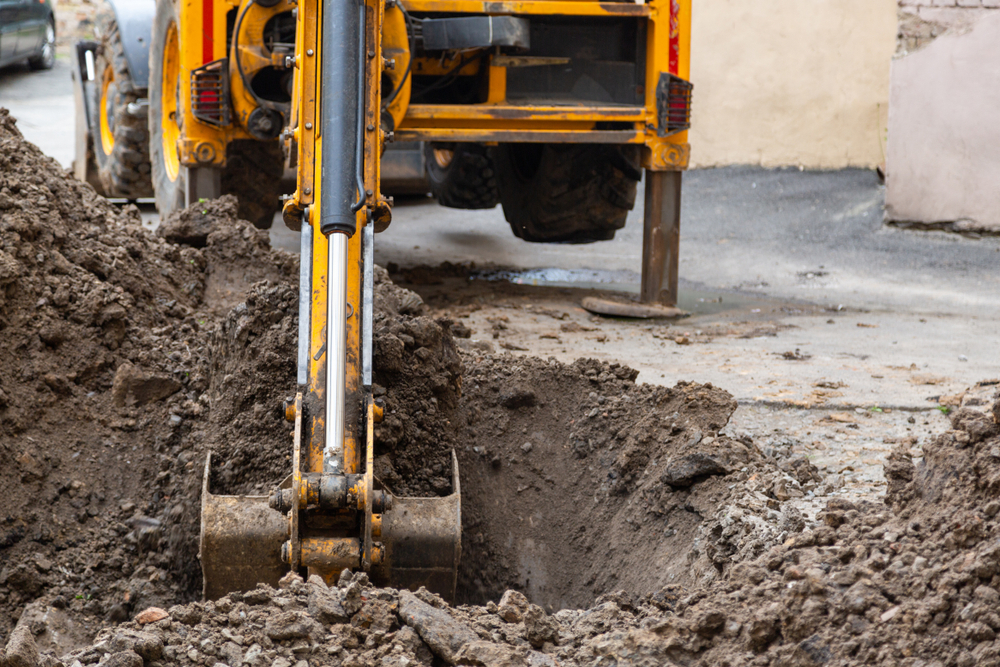Underground Utilities, an Ohio excavation contractor, is facing Occupational Safety and Health Administration (OSHA) fines totaling $251,517 for violations at three trenching worksites following the death of a 33-year-old worker in Columbus, the agency announced January 17.
The worker was pinned between the “spreader” bars of a trench box and the wall of a 7-foot-deep excavation. OSHA investigators found a sling hook came loose while the box was suspended in the trench.
The agency cited Underground Utilities for exposing crews to trenching hazards that same day at a Sandusky worksite and at another five days earlier in Avon Lake, where crews were replacing municipal sewer and water lines at the time.
Underground Utilities Inc. of Monroeville, Ohio, has been cited six times since 2017 for ignoring federal trench safety rules, according to the agency.
“A worker’s life was cut short because this employer used faulty equipment,” Larry Johnson, OSHA’s Columbus, Ohio, area director, said in an agency statement. “These three investigations at different sites in the same week show Underground Utilities’ lack of concern for employee well-being by failing to follow federal safety regulations and industry-recognized best practices.”
The agency found that the company failed to ensure that required cave-in protection was in place and properly used at all three worksites. Inspectors also discovered the employer neglected to keep a spoils pile away from the edge of the trench, used unsafe rigging to hoist trench boxes, and used damaged cave-in protection.
OSHA cited Underground Utilities with one willful violation, two repeat violations, and five serious violations of federal trenching and excavation standards, as well as cited the company for failing to report a fatality within eight hours.
Trench collapses are among the construction industry’s most lethal hazards, according to OSHA. The death of the worker in Columbus was one of 39 reported to OSHA in 2022.
In July 2022, the agency unveiled plans for 1,000 inspections in response to an uptick in trenching and excavation fatalities, and it has an ongoing National Emphasis Program (NEP) addressing trenching and excavation hazards.
Agency compliance safety and health officers (CSHO) may stop by and inspect any excavation site they encounter during their daily duties.
Uterine cancer added to WTC-related conditions
Uterine and endometrial cancers have been added to the list of conditions covered by the National Institute for Occupational Safety and Health’s (NIOSH) World Trade Center (WTC) Health Program under a final rule issued January 18 (88 Federal Register (FR) 2845).
“This rule is significant as it not only provides access to life-saving care and treatment, but also recognition for the women who sacrificed so much on and after 9/11 that their diagnosed uterine cancer is a WTC-related health condition,” NIOSH Administrator John Howard, MD, said in a NIOSH statement.
The WTC Health Program provides no-cost medical monitoring and treatment for certified WTC-related health conditions for those directly affected by the 9/11 attacks in New York; at the Pentagon; and in Shanksville, Pennsylvania. Coverage is authorized through 2090. Program benefits include monitoring, certain cancer screenings, and benefits counseling.
There are more than 121,000 members enrolled in the WTC Health Program, according to NIOSH, and more than 26,000 of those are women. The WTC Heath Program was established by the James Zadroga 9/11 Health and Compensation Act of 2010.

